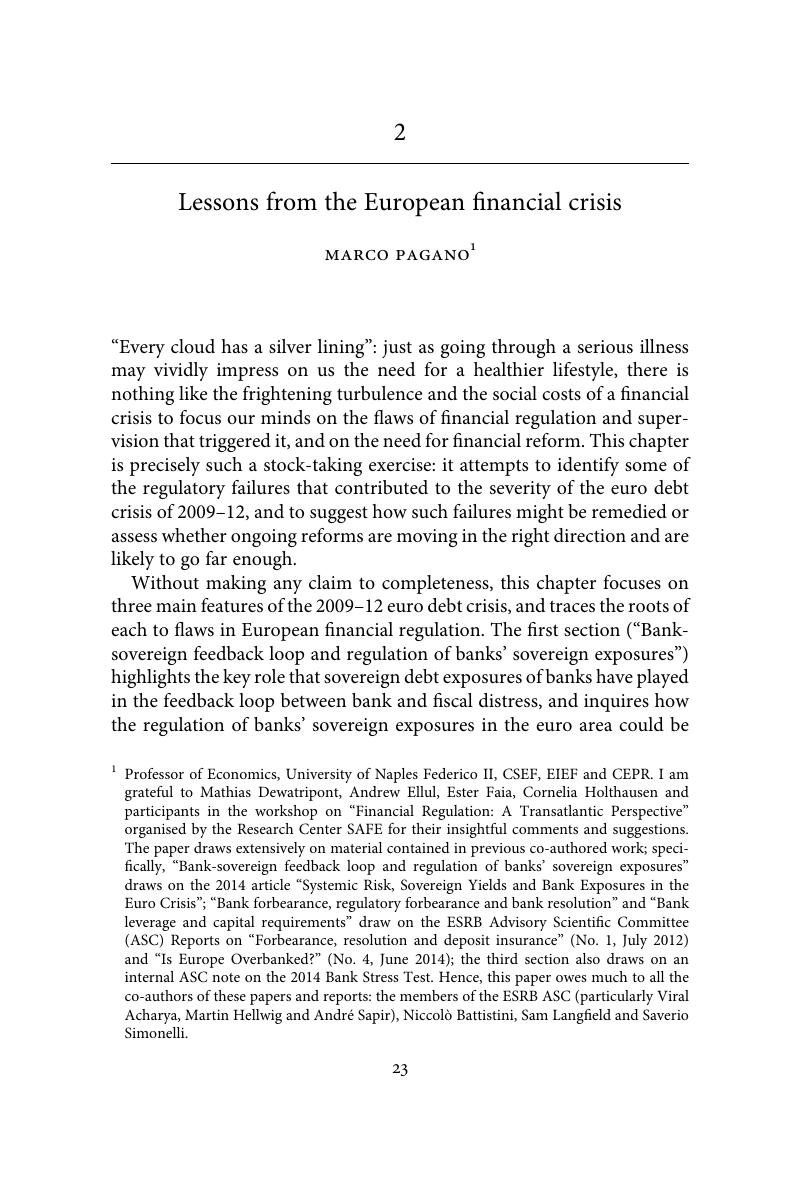Book contents
- Financial Regulation
- Financial Regulation
- Copyright page
- Contents
- Figures
- Tables
- Contributors
- Foreword: Financial regulation – the first macro-prudential tool
- Editors’ preface
- Book part
- Part I Micro- and macro-prudential regulation
- 1 The road from micro-prudential to macro-prudential regulation
- 2 Lessons from the European financial crisis
- 3 Bank stress tests as a policy tool: the European experience during the crisis
- 4 Monetary policy in a banking union
- 5 Competition and state aid rules in the time of banking union
- 6 Bail-in clauses1
- 7 Shadow resolutions as a no-no in a sound Banking Union
- 8 A political economy perspective on common supervision in the Eurozone
- Part II Investor and borrower protection
- Index
- References
2 - Lessons from the European financial crisis
from Part I - Micro- and macro-prudential regulation
Published online by Cambridge University Press: 05 August 2015
- Financial Regulation
- Financial Regulation
- Copyright page
- Contents
- Figures
- Tables
- Contributors
- Foreword: Financial regulation – the first macro-prudential tool
- Editors’ preface
- Book part
- Part I Micro- and macro-prudential regulation
- 1 The road from micro-prudential to macro-prudential regulation
- 2 Lessons from the European financial crisis
- 3 Bank stress tests as a policy tool: the European experience during the crisis
- 4 Monetary policy in a banking union
- 5 Competition and state aid rules in the time of banking union
- 6 Bail-in clauses1
- 7 Shadow resolutions as a no-no in a sound Banking Union
- 8 A political economy perspective on common supervision in the Eurozone
- Part II Investor and borrower protection
- Index
- References
Summary

- Type
- Chapter
- Information
- Financial RegulationA Transatlantic Perspective, pp. 23 - 48Publisher: Cambridge University PressPrint publication year: 2015



